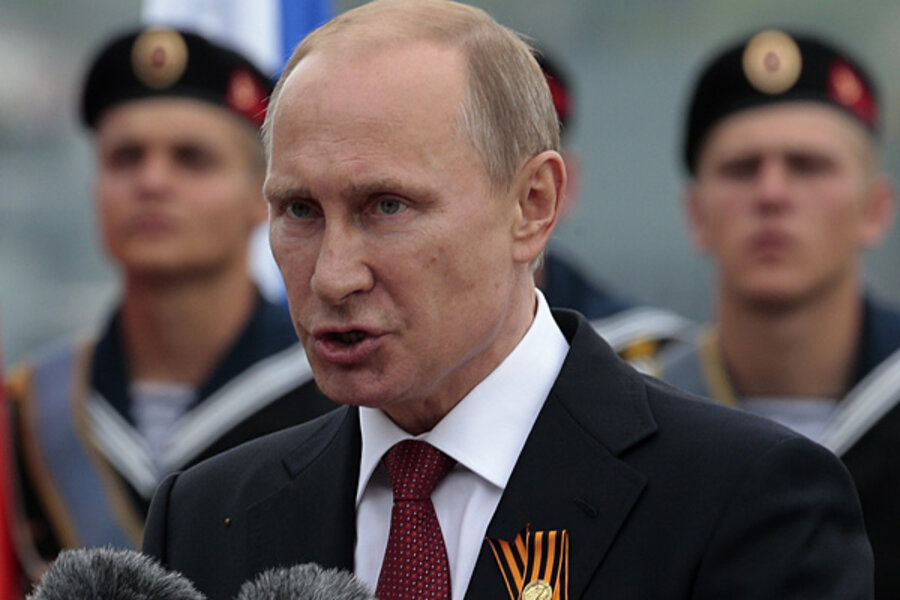Crimea oil and gas will not come easy for Russia
Loading...
Russia’s seizure of Crimea has led to speculation that a major motivating factor was to acquire potentially vast energy resources in the Black and Azov Seas. I wrote back in March on the eve of the Crimean vote to secede from Ukraine about reports that Russia was eyeing the oil and gas reserves off the coast of Crimea.
But taking control of territory rich in oil and gas is different from being able to successfully pull those energy resources from the ground. The New York Times published an article on May 17 that suggested that Russian President Vladimir Putin quietly achieved a massive windfall – acquiring “rights to underwater resources potentially worth trillions of dollars.”
The Black and Azov Seas could certainly hold a huge bounty, potentially up to almost 10 billion barrels of oil and 3.8 trillion cubic feet of natural gas. The most promising field is the Skifska field just southwest of the Crimean coastline. Early estimates suggest that Skifska holds 200 to 250 billion cubic meters of natural gas.
However, just because Russia now controls this territory does not mean they will be able to take advantage of it, at least not anytime soon. Although there are rough estimates of significant reserves of oil and gas, the area is still relatively unexplored. Ukraine had trouble attracting any bidders for two of its four blocks off the coast of Crimea, despite heavy salesmanship by the government in Kiev. (Related Article: Russia’s Weakened Hand Could Pay Off For Beijing In Major Gas Deal)
Also, Russian energy companies still do not have a thorough understanding of the geology in Crimean waters. LUKoil, one of Russia’s largest oil companies, was outbid in an auction for the Skifska field by an international consortium led by ExxonMobil. The consortium had been in talks with the Ukrainian government under Viktor Yanukovych over a deal for the Skifska field right up until the annexation of Crimea. The oil companies had plans to spend $735 million to drill two wells. The deal was never finalized and ExxonMobil and its partners obviously shelved those plans when things took a turn for the worse a few months ago.
Presumably, with Russia now moving in, Russian companies will have to redo some of the preliminary exploratory work that the private consortium had already done.
But, more importantly, offshore oil drilling is highly technical, and requires enormous upfront capital. Russia has often teamed up with international oil companies – like ExxonMobil, BP and Royal Dutch Shell -- to tackle some of the extraordinarily difficult-to-reach oil fields, as Russia’s companies can’t always do it on their own. That’s why Russia has sought partners for offshore oil drilling in the Arctic, constructing LNG terminals in Sakhalin, and for tight oil drilling in Western Siberia.
But in Crimea – which much of the world does not recognize as Russian territory – finding international partners, should Russia need them, will be extremely difficult to do.
For example, on April 30, Shell’s Chief Financial Officer Simon Henry ruled out new Russian ventures for the foreseeable future. “I don't think we'll be jumping into new investments (in Russia) anytime soon,” he said. With Crimea in international legal limbo, other companies won’t invest, either. (Related Article: Russia Showing Interest In Natural Gas Investment In Turkey)
Even if Russia can go it alone in the Black Sea – and since the waters are shallower and less remote than some of its other major new projects, they probably will try to – it will take years before any oil and gas will come online.
In the meantime, Russia is paying the price for its international isolation. The economy will probably enterrecession in the second quarter, according to Russia’s economy minister. Capital flight from Russia reached $63.7 billion in the first three months of this year, exceeding last year’s total. The ruble is also down 6 percent against the dollar so far this year, pushing up inflation, which hit an annual rate of 7.2 percent.
Moreover, in the long-term, Russia may have severely damaged its reputation as a place for doing business. That will hurt the economy for years to come and is much harder to rectify than playing with interest rates or money supply, which can be used for short-term fixes. The darkening economic climate is inflicting real costs on Russia, and that flies in the face of headlines describing Russia’s takeover of Crimea’s oil and gas reserves as a major strategic triumph.







